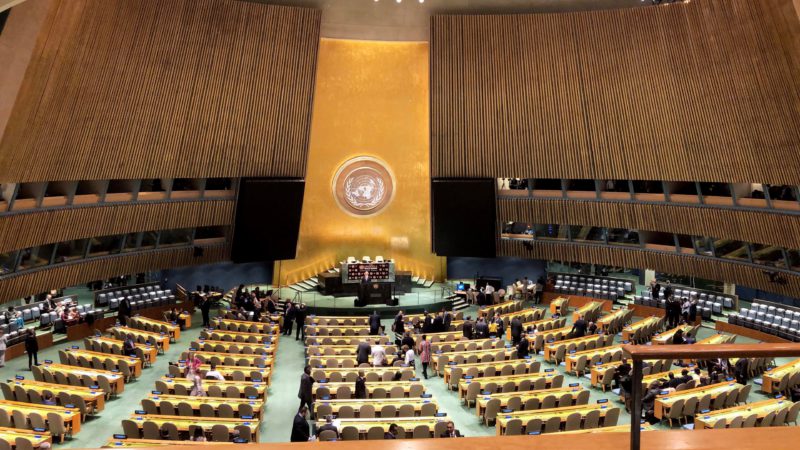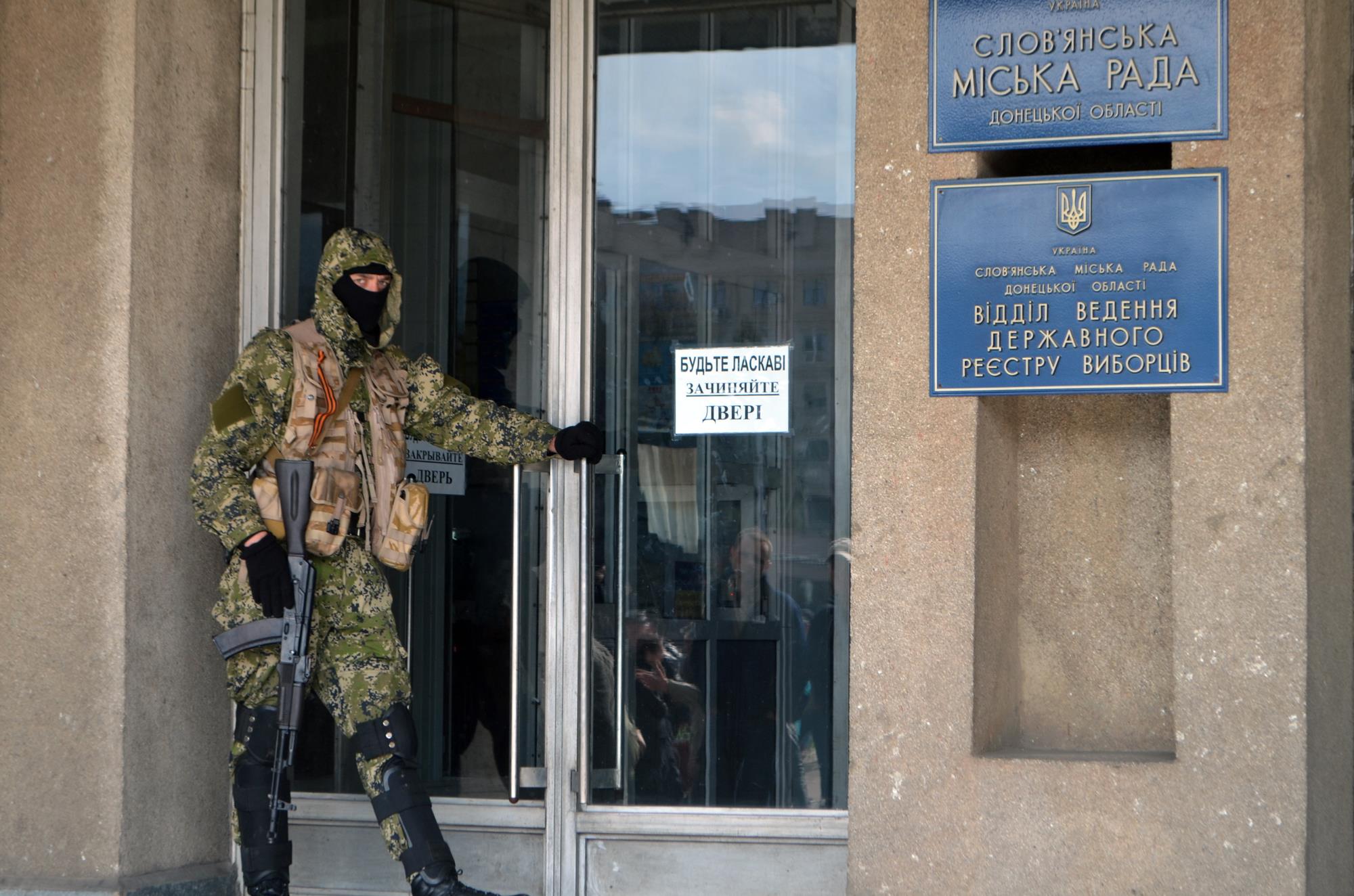Threats are all around us. Every threat is something that can harm us, though some more than others. There is only one thing, however, that can annihilate us. Academics, policymakers, leaders and theorists all have a name for the eventual outcome: a nuclear winter. Secretary General of the United Nations, Antonio Guterres, in his opening remarks at the High-Level Meeting on the International Day for the Total Elimination of Nuclear Weapons at the 2018 United Nations General Assembly (UNGA) said that “nuclear war can never be won” and as such, “should never be fought.” Albert Einstein once famously claimed that the fourth world war would be fought with sticks and stones, a reference to the foresight that there would be nothing else to fight with after a nuclear war had destroyed everything else in the world, in the yet-to-occur third world war.
When a nuclear-powered nation is aware that it is about to be, or is being attacked via an incoming nuclear missile, the logic is that they then reciprocate and the firing of nuclear weapons continues back and forth. It was always intended that this scenario never occur because of the M.A.D. principle: Mutually Assured Destruction. The theory goes that no country will attack another nuclear power because doing so would ensure its own destruction as well. It has been this principle that has largely ensured the stability of the international world order from the moment the first nuclear bombs were dropped on Hiroshima and Nagasaki – the first and only instance of nuclear weapons being used in wartime. Brazil’s Foreign Minister, Aloysio Nunes, at UNGA, stated that it would only take “one press of a button to create the unimaginable that would end humanity.”
The widely accepted repercussion and almost certain fact of a full scale nuclear war would be nuclear winter, which would cause “the ash and dust, transported by the atomic blasts into the higher layers of Earth’s atmosphere, [forming] a cloud layer, [and] making it impossible for sunlight and heat to reach the surface. Dropping temperatures would plunge Earth into a nuclear winter, maybe for decades or even centuries. Plants, no longer able to produce nutrients by photosynthesis, would quickly die off, followed by the starving animals and finally humans.” Suffice to say that that would be the literal annihilation of life altogether.
The United Nations Security Council, (UNSC) the supposed protectorate of the international system and the guarantor of the global peace and stability, is made up of five nuclear powered nations, as they were the dominant states in the global order at the time and they slowly all grasped on to the title of being a nuclear-powered state. Proliferation didn’t stop there. Soon after, India, Pakistan, and Israel (although it wont admit nor deny the possession of nuclear weapons as an official state policy) became nuclear-powered nations. Many other nations either willingly or after extensive negotiations gave up their nuclear programs for the sake of global stability, among other reasons. Iran is a notable example, with the Joint Comprehensive Plan of Action (JCPOA), also known as the Iran Nuclear Deal.
The rest of the world negotiated and signed the Non-Proliferation Treaty (NPT), which the United Nations refers to as a “the cornerstone of the global nuclear non-proliferation regime and an essential foundation for the pursuit of nuclear disarmament.” The only non-signatories to the agreement are of course, India, Pakistan, and Israel, as well as South Sudan (as a very recently created and young state). North Korea once signed, but has since withdrawn from the treaty to pursue its nuclear ambitions as deterrence to what it perceives as a permanent and extensive attempt by the U.S. to overthrow Kim Jong-un’s regime and his family dynasty.
After the recent summit between Kim Jong-un and U.S. President Donald Trump in Singapore, North Korea reiterated that it will not disarm its nuclear weapons unless the U.S took “reciprocal action.” That created the original impasse that the world has long been attempting to be avoid between nations, and especially nuclear-powered nations. A similar situation, embodied in Pakistan & India’s mutual hostility, has been a major cause of anxiety in the world. For that reason, the United Nations, on the initiative of the Non-Aligned Movement, has designated that September 26 would be the annual International Day for the Total Elimination of Nuclear Weapons, which would serve as a yearly reminder and catalyst for incremental steps towards what would eventually be a momentous day of full, irreversible, transparent and accountable global nuclear disarmament.
This year’s High-Level Meeting on the Total Elimination of Nuclear Weapons, held in the Economic and Social Council of the United Nations General Assembly, was a huge disappointment for what could have been a grand opportunity. As is, Secretary General Antonio Guterres estimates that there are 14,400 nuclear weapons worldwide and approximately 2,000 of them are in a state of operational alert. He went on to reject the need for nuclear deterrence, saying that with universal support, the knowledge of what nuclear weapons could do would and should be all the deterrence needed for global disarmament. “You can kill the hungry, the poor and the ignorant, but you cannot kill hunger, poverty or ignorance.”
The Council, filled with a seat for every nation, was noticeably empty. Brazil’s Foreign Minister, one of the states that did send delegations, referred to nuclear weapons as a “harmful legacy of the cold war,” while the President of Palau emphasized the “consequences of the use and testing of nuclear weaponry,” and urged for a renewed effort for the 1963 “nuclear test-ban treaty” to be upheld.
Meanwhile, Javad Zarif, the Iranian Foreign Minister, accompanied by a large delegation, criticized the United States for “developing mini-nuclear weapons” as it “lowers the consequences of their use” and thus “the threshold of their use” as well. Additionally, he lambasted Israel for its “non-adherence to the [NPT]” and for “threatening other nations in the region with nuclear annihilation.“ Speaking on the subject of the U.S.’ withdrawal from the JCPOA, even after there had so far been twelve reports from the International Atomic Energy Agency (IAEA) confirming that Iran continues to adhere to the agreement, Zarif said that the “withdrawal would only further the United States’ international isolation, which is unfortunately completely deserved.”
Similarly, Iraq’s Vice Minister for Foreign Affairs called on the international community to eliminate Israel’s nuclear weapons and have it enter the NPT, whilst stating that his country “looks forward to joining the nuclear test-ban treaty.” The delegation from Bangladesh reminded the council that “Hiroshima and Nagasaki shook the consciousness of mankind” and that “billions of dollars [are] wasted on nuclear development.”
What started as a day that could have seized on the opportunity of the topic of mutual and reciprocal disarmament, which was still very potent and fresh in the minds of all states after the events of the last few months concerning Iran and North Korea, the day ended up being very disappointing. In the past, states at least all agreed on the fact that nuclear weapons must be disarmed but that it was impossible to do so unilaterally under the respective political climates of the day. Some might have not even truly believed that, but made an appearance regardless.
Though that could have been the case this year as well, there were barely any delegations present, let alone from nuclear-powered nations, to publicly state their intent to disarm. It seems that while the international world order shifts and most nations are preoccupied with domestic politics, or what they would perceive to be more imminent threats, there was not even an attempt to pretend that nuclear disarmament was still even possible and relevant in this day and age.
Yes, it has been a busy year, but that, in and of itself, is a dangerous precedent to set.
Picture Source: The United Nations General Assembly hall (2018), by Nasser Haidar. Courtesy of the author.
Disclaimer: Any views or opinions expressed in articles are solely those of the
authors and do not necessarily represent the views of the NATO Association of
Canada.




